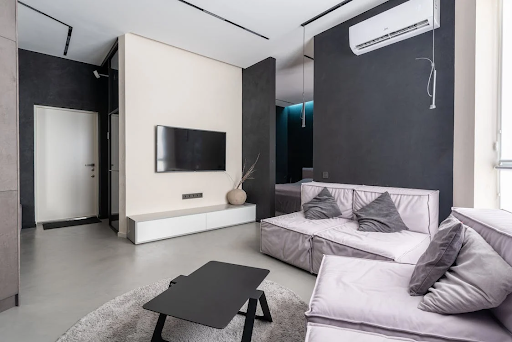Are you experiencing a hiked-up electricity bill? If so, it might be due to your air conditioner using too much electricity. Generally, these units use a lot of electricity, but it might be time to take a closer look if they run excessively.
Why is The Air Conditioner Using Too Much Electricity?
However, conduct an energy audit to determine if an underlying mechanical issue or other appliances are consuming extra electricity. Here are a few reasons your air conditioner is using too much electricity.
Table of Contents
Lack of Proper Maintenance
Like any other appliance, an air conditioner requires regular maintenance to operate correctly and efficiently. If the unit is not frequently serviced, it leads to excessive energy consumption. Have an AC maintenance checklist to attend to the unit’s upkeep.
Let a professional ascertain that all components are functioning correctly, including checking for debris in the filters and coils, inspecting the fan belt tension, and lubricating any necessary parts. Cleaning the condenser, evaporator coil, and air filter will significantly reduce electricity usage. Also, inspect the ductwork for leaks that allow cool air to escape.
Incompatible Sizing
When the AC unit is too small for the cooling area, it struggles to keep up with the demands. The AC runs longer than usual, leading to increased electricity usage. Have a professional inspect your home and the air conditioner unit to ensure the size is adequate for the area.
If the unit is too small, you have several options. Replace with a larger model, or supplement it with a whole-house fan. Additionally, increase the insulation, seal any air leaks, and use portable units.
Old, Inefficient Models
If your AC unit is over ten years old, it might be using too much electricity. Although the upfront cost of replacing an older model with a newer one is higher, the long-term savings are worth the price.
New AC units have energy-saving settings and efficient technology that saves on electricity. They also have added features such as a programmable thermostat regulating temperature plus a warranty to protect your investment if something goes wrong.
Low Refrigerant Levels
Low refrigerant levels are due to a leak in the system, and it reduces the cooling efficiency of your AC. The causes of a leak are incorrect installation, age-related wear, and tear, or a manufacturing defect. No matter the reason, address the issue quickly to avoid further damage. Properly installing an AC unit minimizes leaks, ensuring optimal performance, longevity, and reduced maintenance needs for a comfortable indoor environment.
Low refrigerant levels cause the AC to consume more electricity as it works harder to cool the space. Have a professional assess the refrigerant levels system, repair any damage, and refill the refrigerant to get your system running efficiently. Also, periodically check for any signs of wear, such as unusual noises, warm air coming from the vents, and moisture around the AC unit.
High Outdoor Temperature
When it’s sweltering and humid outside, the AC works extra hard and runs for extended periods, increasing electricity usage. Often, this is unavoidable and can cause your electricity bill to spike. To control the cost, set the thermostat at an appropriate temperature and reduce usage during peak hours when energy costs are higher. Invest in fans as they keep the air circulating, cooling the room faster.
The AC Will Run More Efficiently
Following these tips and conducting an energy audit will determine why your air conditioner uses too much electricity. The effort enables you to find the most cost-effective solution. Never ignore an issue, no matter how small, because it could lead to more significant problems.
















